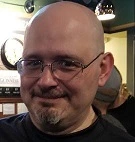If you enjoy this post, please retweet it.
I was recently talking about the MCU on Facebook (surprised?), and Thor: The Dark World (“TTDW”) came up. My general position was painful to admit: TTDW was a bottom tier MCU film. Thor is my favorite MCU character, but this entry was a bit weak. My general sentiment, however, was that you’ll appreciate all of these movies more if you see them as episodes in a longer story arc. This led to two points being made, one by me and one by a Facebook friend, Chad.
The Thor-Loki Dynamic
Chad stated:
I -really- like the Thor/Loki dynamic in Dark World. It’s set-up in the first movie. You can’t have their relationship in Ragnarok (especially post-Avengers) without it.
I agreed to a large extent, first because Tom Hiddleston’s acting was in my opinion the best overall throughout the MCU, but second because of Chris Hemsworth, who did a great job as Thor. The problem is that this relationship was a secondary plotline. The main storyline brought the film down to the bottom tier of the MCU. That said, Chad’s observation was an important one that was in line with my other comments of my Facebook thread. Secondary plotlines become far more important when you see these movies as episodes in a longer story that’s never (to my knowledge) been done in cinema. Iron Man 2 was my least favorite MCU film, and I’ll still gladly watch it. It’s an episode in a decade-long story that I love. A weak episode (to me), but still part of the story.
I told Chad I’d re-watch the movie and focus on that relationship to see if I could grab anything new about it. On my latest viewing, I learned . . . very little. This isn’t to say I disagree with Chad – I absolutely agree – I just remembered everything about it, so there was nothing new. Although Thor: Ragnarök fully developed Thor’s dimwittedness from mythology, he showed some signs of it in the first two Thor movies, but only with respect to Loki, who was always able to fool him. In addition, their love-hate relationship ultimately favored love, made apparent in the opening act of Infinity War. That act wouldn’t have meant a thing without the context of the prior films, and that made Infinity War a better film than it otherwise would have been.
Frigga’s Death
An even better example of this effect was the death of Frigga. When I first saw TTDW, I thought her death was unnecessary and cheap. It appeared as a means to say, “Let’s have someone die to show that the stakes are high, but not someone important enough that the stakes are actually high.” In hindsight, my perspective was dead wrong. Like all the major MCU characters, Thor went on a path of self-improvement, but he hit a major stumbling block off-camera between Infinity War and Endgame: depression and PTSD. While having never slipped unto unworthiness, Frigga was the last push he needed to get back on track, and their interaction in Endgame wouldn’t have conveyed such meaning if she hadn’t died in TTDW. This is hardly novel in the MCU (or elsewhere in cinema). I’ve discussed this before with respect to Black Widow and Hawkeye. The MCU did a surprisingly good job of immersing me in the emotions of those relationships. TTDW is a good example of how they laid the foundation for one of those key moments.
Why Is It So Bad?
Honestly, I have no idea why I place the TTDW in the bottom tier of MCU movies. It should be great. It has well-defined villains, a well-defined primary antagonist, plenty of action, plenty of humor, plenty of human drama, and perhaps even more is at stake than in Infinity War (but at least as much). I can’t explain why it’s not one of the best; it simply isn’t.
Follow me @GSLLC (and please retweet!)
Follow Chad Underkoffler @CUnderkoffler
Follow Tom Hiddleston @twhiddleston
Follow Chris Hemsworth @chrishemsworth
